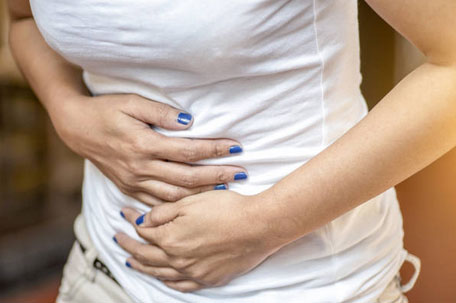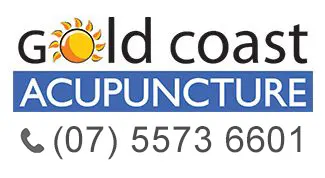Digestion Issues Acupuncture Gold Coast
Digestive disorders span a range of illnesses, varying in severity from minor to major. Examples of typical digestive disorders consist of Gastroesophageal reflux disease (GORD), Gastritis, Irritable Bowel Syndrome (IBS), lactose intolerance, Crohn’s Disease, Ulcerative Colitis, Haemorrhoids, Diverticulitis and hiatal hernia.
Typical indicators of digestive disorders comprise bleeding, bloating, reflux, constipation, diarrhea, heartburn, pain, nausea, weight loss and vomiting. To precisely diagnose digestive disorders, it is essential to gather a comprehensive medical history and perform a physical examination.

Gastroesophageal Reflux Disease (GERD)
When stomach acid flows back up into your esophagus, a condition known as acid reflux, you may experience a burning sensation in the middle of your chest. This commonly happens after meals or during the night.
Occasional acid reflux and heartburn are normal, but if you have symptoms that disrupt your daily life or occur at least twice per week, it might be a sign of GERD, a chronic digestive condition. If you have persistent heartburn, unexplained tooth erosion, bad breath, nausea, chest or upper abdominal pain, difficulty swallowing or breathing, it’s important to consult your doctor.
Many people find relief by avoiding trigger foods and drinks, or by using over-the-counter antacids or medications that reduce stomach acid and inflammation in the esophagus. Lifestyle changes such as elevating the head of the bed, avoiding lying down after eating, and quitting smoking can also be helpful. However, some cases of GERD may require more intensive treatment.
Gastritis
Gastritis is a broad category encompassing various conditions that share a common factor: inflammation of the stomach lining. This inflammation typically arises from infection by the same bacterium responsible for most stomach ulcers or the consistent use of specific pain medications. Excessive alcohol consumption can also play a role in causing gastritis.
Gastritis can manifest abruptly (acute gastritis) or gradually progress over time (chronic gastritis).
Gallstones
Gallstones are solid formations that develop in the gallbladder, a small organ responsible for storing and releasing bile to aid in digestion. These stones typically form when cholesterol or bilirubin, a waste product, becomes excessively concentrated and solidifies.
When gallstones obstruct the ducts connecting the gallbladder to the intestines, it can result in intense pain in the upper-right abdomen. In such cases, the recommended course of action typically involves surgical removal of the gallbladder.
Crohn’s Disease
Crohn’s disease falls under the category of inflammatory bowel disease (IBD), which encompasses various digestive conditions. It can impact any segment of the gastrointestinal (GI) tract, although the terminal ileum and large intestine, specifically the connection between the small bowel and colon, are frequently affected.
However, the exact cause of this disease remains uncertain to doctors, although there is a belief that genetics and family history could contribute. The predominant symptoms of Crohn’s disease are abdominal pain, diarrhea, rectal bleeding, weight loss, and fever.
Ulcerative Colitis
Ulcerative colitis is categorized as an inflammatory bowel disease, sharing similar symptoms with Crohn’s disease. However, the specific area affected by ulcerative colitis is solely the colon.
When the immune system mistakenly identifies the colon lining or other substances as invaders, ulcers or sores form on the lining of the colon. If you frequently experience urgent bowel movements, pain accompanied by diarrhea, blood in your stool, or abdominal cramps, it is imperative to consult with your doctor.
Leveraging medication can suppress the inflammation, while avoiding discomfort-triggering foods might offer relief.
Irritable Bowel Syndrome
If you experience regular stomach pain or discomfort at least three times a month for consecutive months then it is possible that you may have irritable bowel syndrome (IBS). Common symptoms of IBS include irregular bowel movements, with some experiencing hard and dry stools while others have loose and watery stools. Additionally, bloating and gas can also be signs of this condition.
The exact cause of IBS remains unknown, but managing the symptoms often involves making dietary changes. This includes consuming low-fat, high-fiber meals and avoiding common trigger foods such as dairy products, alcohol, caffeine, artificial sweeteners, and foods that are known to cause gas.
Haemorrhoids
If you notice bright red blood in the toilet bowl after having a bowel movement, it might indicate the presence of haemorrhoids.
Haemorrhoids are swollen veins located in the anus or lower rectum, which can cause discomfort and itchiness. Contributing factors include chronic constipation, diarrhea, straining during bowel movements, and a diet lacking in fiber.
To address haemorrhoids, it is recommended to increase fiber intake, stay hydrated by drinking more water, and engage in regular exercise.
Diverticulitis
Diverticula are small pouches that can develop in weak areas of the digestive tract lining. While they can occur in any part of the tract, they are most often found in the colon. If these pouches are present without causing any symptoms, it is known as diverticulosis, which is a common condition among older adults that usually does not cause any issues. Symptoms of diverticulitis include fever, chills, nausea, and abdominal pain. It is important to note that obesity greatly increases the risk of developing diverticulitis.
How does Acupuncture relieve Digestive issues?
Acupuncture is a form of alternative medicine in which thin needles are inserted into the body. It is a key component of traditional Chinese medicine (TCM).
According to research, Acupuncture has shown potential in assisting individuals with gastrointestinal disorders by triggering responses in the nervous system that aid in regulating gut motility. By either promoting or calming gut movement, acupuncture has the potential to alleviate digestive symptoms by tackling the root cause of the digestive process.
The effect of acupuncture on functional gastrointestinal disorders: A review of the literature
Acupuncture may relieve (both sensory and affective) inflammatory pain. This occurs through activation of a variety of bioactive chemicals through peripheral, spinal, and supraspinal mechanisms.
Zhang et al 2014 – Mechanisms of acupuncture in persistent pain
The staff at our Acupuncture Gold Coast clinic are trained and qualified to provide you with the highest standards of practice and treatment.
Acupuncture Gold Coast Location
The Gold Coast Acupuncture Clinic is located in the Coomera Shopping Village at 13/31 Dreamworld Parkway, Coomera opposite the Boathouse Tavern. This is a great Location for the surrounding suburbs of Coomera, Upper Coomera, Oxenford, Helensvale, Pimpama, Ormeau, Willowvale, Tamborine Mountain and Hope Island.
Book your appointment
Acupuncture is available at our Coomera Clinic. If it is your first visit please make sure you arrive 5 minutes early to fill out paperwork. All our therapists are qualified and trained professionals.
Call our Clinic
You may call us at our Coomera clinic directly.
Phone: 5573 6601
Book Online 24/7
You may book an appointment online by clicking here


